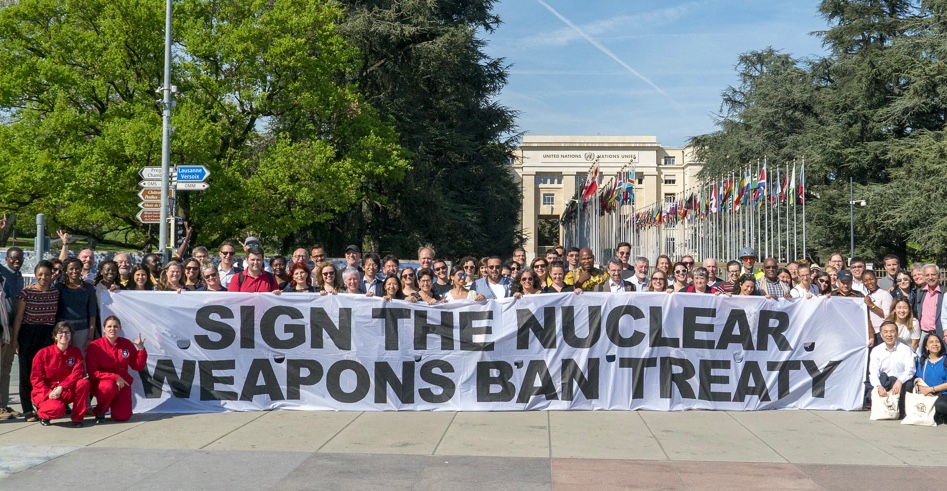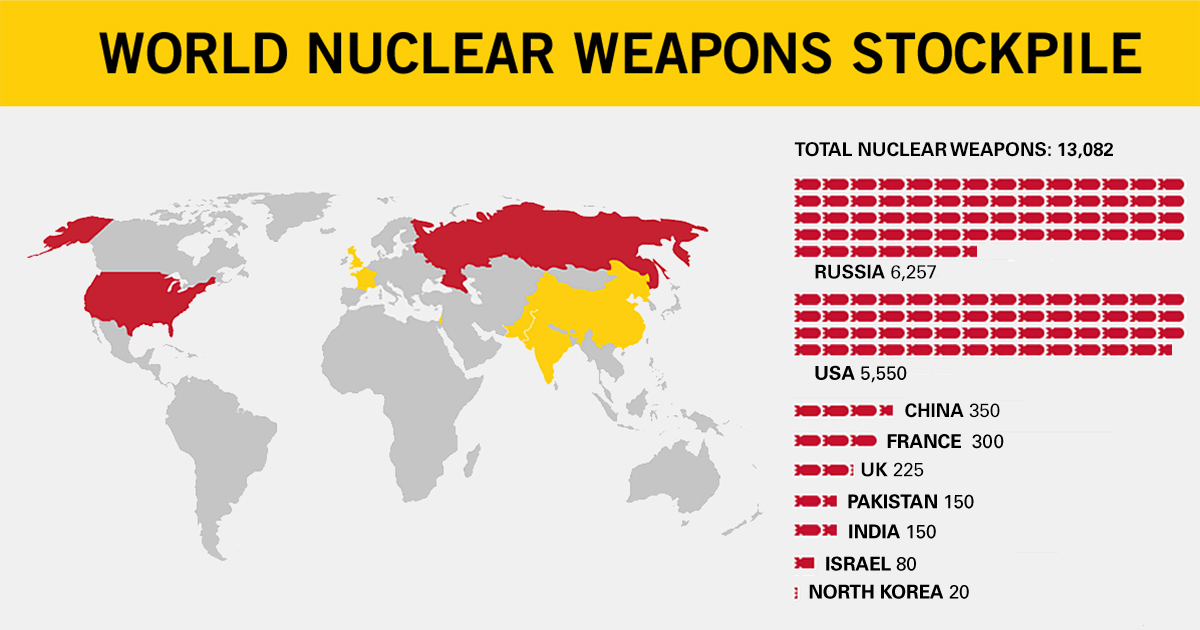
ICAN’s New Global Nuclear Spending Report
$91 Billion Spent in 2023
Susi Snyder / International Campaign to Abolish Nuclear Weapons (ICAN)
(June 2016, 2024) — ICAN released its fifth annual report on nuclear weapon spending today: “Surge: 2023 Global Nuclear Weapons Spending”.
Here’s what you need to know:
Country Spending in 2023
- China $11,850,032,735- $376/second
- France $6,060,606,061 – $192/ second
- India $2,657,874,340 – $84/second
- Israel $1,090,804,771 – $35/second
- North Korea $856,333,333 – $27/second
- Pakistan $1,011,005,630 – $32/ second
- Russia $8,308,544,638 – $263/second
- United Kingdom $8,058,218,532 – $256/ second
- United States $51,500,000,000 – $1,633/second
For a total of $91,393,420,041 in 2023-
$2,898/second were spent on nuclear weapons
It’s $10.8 billion more than in 2022. The United States spent more than all of the other nuclear-armed states combined and showed the biggest one-year increase to $51.5 billion. China was next in line, with spending of $11.9 billion and Russia spent $8.3 billion.
The report also shows that total nuclear weapons spending in the last five years was more than $387 billion, more than what the World Food Programme estimates it would take to end world hunger.
Of that, companies got about 30% of all spending, and turned around to hire at least 450 lobbyists as well as provide financing for major think tanks to influence the nuclear debate.
What You Can Do:
If you can help us amplify the info:
First of all, we have a social media toolkit with sample texts and graphics – as well as the links to the translation templates:
We also produced this in-depth explainer video, in which Susi and Alicia (co-authors) tackle the report’s key findings and messages.
You can also help us by amplifying ICAN’s posts about the report:
- https://twitter.com/nuclearban/status/1802551746415522041
- https://www.instagram.com/nuclearban/p/C8TXkVphKQ3/
Finally, we have also seen a lot of media attention for our findings – and SIPRI’s – today, including good wire pickup, and we would be really grateful if you can help us boost these pieces. Here are just a few examples:
- AFP incl interview with ICAN’s ED Melissa Parke: https://www.yahoo.com/news/nuclear-arms-spending-soars-global-040306949.html?fr=sycsrp_catchall
- The Guardian https://www.theguardian.com/world/article/2024/jun/17/global-spending-on-nuclear-weapons-up-13-in-record-rise
- Deutsche Welle https://www.dw.com/en/nukes-spending-rises-amid-growing-global-tensions-studies/a-69380756
- LeMatin (in French, AFP): https://www.lematin.ch/story/menace-le-rearmement-nucleaire-avance-dans-le-monde-346268013823
- EFE (Spanish): https://www.infobae.com/america/agencias/2024/06/17/el-gasto-global-en-armas-nucleares-crecio-un-134-en-2023-y-eeuu-agrupo-mas-de-la-mitad/
There are a billion other things this money can go to — and it’s why we’re doing the 16-22 September Week of Action. We’re going to have a call- (two calls, one early, one late) on 20 June to talk about the Week and hear from partners about the ways they’re organising to say No Money for Nuclear Weapons. Will you join us? (RSVP here):
Download the Executive Summary
Download the full report
Download synthèse en français
Surge: 2023 Global Nuclear Weapons Spending
In its report “Surge: 2023 Global Nuclear Weapons Spending” the International Campaign to Abolish Nuclear Weapons shows in 2023, $91,393,404,739 on their arsenals – equivalent to $2,898 a second. The report shows a $10.7 billion increase in spending on nuclear weapons in 2023 compared to 2022 with the United States accounting for 80% of that increase.
In 2023, the nine nuclear-armed states spent $10.8 billion (13.4%) more on their nuclear arsenals than the year before, a total of $91.4 billion, or $2,898 per second on nuclear weapons.
In 2023, the nine nuclear-armed states spent $10.8 billion (13.4%) more on their nuclear arsenals than the year before, a total of $91.4 billion, or $2,898 per second on nuclear weapons.
Every country increased the amount it spent on nuclear weapons. The United States had the biggest increase, at nearly 18%. The United States spent more than all of the other nuclear-armed states combined, at $51.5 billion. China surpassed Russia as the second-highest spender at $11.9 billion, and Russia came in third, spending $8.3 billion.
In 2023, twenty companies working on nuclear weapons development and maintenance earned at least $31 billion for this work. There are at least $335 billion in outstanding nuclear weapons contracts to these companies, some of which continue for more than a decade. In 2023, at least $7.9 billion in new nuclear weapon contracts were awarded.
Each company that builds nuclear weapons exerts influence throughout the government, think tanks and financial institutions. These companies spent $118 million lobbying governments in the US and France, an $11 million increase from 2022.
Several companies held more than a dozen meetings with UK officials in 2023, with two companies meeting UK officials more than 40 times, and five companies meeting with the UK Prime Minister.
Companies donated more than $6 million to the top think tanks researching and writing about nuclear weapons and current and former employees of these companies sit on think tank boards of directors and advisory councils. They also sit on the boards of financial institutions that have significant investments in their companies.
ICAN has published this annual analysis for five years, and in that time, global nuclear spending has increased by 34%. Amidst these massive expenditures to fund weapons of mass destruction by a handful of governments, nearly 100 countries have signed the UN Treaty on the Prohibition of Nuclear Weapons (TPNW). These governments seek to reject nuclear weapons and demonstrate responsible behavior in an age of catastrophic competition. All countries face a choice: to stand on the side of investment in weapons of mass destruction or to work towards their disarmament by joining the TPNW.
